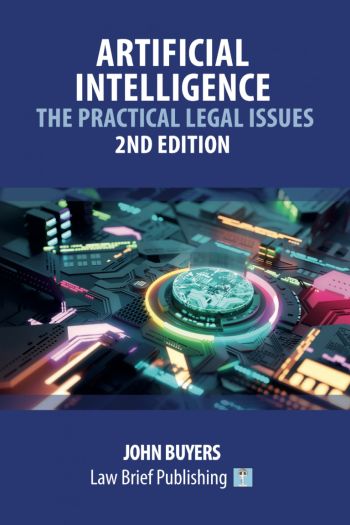
Artificial Intelligence remains a complex and rapidly evolving technology. Since the first edition of this book there have been a number of significant legislative and policy initiatives which are beginning to shape the nascent approaches that international regulators will adopt when regulating the use of machine learning and AI. In a fast moving specialist area, it is essential to keep pace. If you are lost and need clear direction, ‘Artificial Intelligence – The Practical Legal Issues‘ will guide you through the policy updates and implications of existing AI technologies and provide a practical and easily digestible path to the real issues you need to consider as a legal practitioner.
This book contains a grounding of what differentiates artificially intelligent systems from traditional technology and explains the differences between AI, Machine Learning and Deep Learning. Understanding what AI systems can and cannot do is also essential to developing a clear legal awareness of the technology. From these introductory foundations, you’ll learn how the deployment of AI technology creates issues and risks that need to be considered carefully and that permeate across causation, intellectual property ownership, confidentiality and data protection, recruitment and even criminal law.
This 2nd Edition contains an entirely new chapter on one of the most exciting emergent AI technologies, Automated Facial Recognition, which led to the UK’s first Court of Appeal AI judgment in 2020 – R v South Wales Police. Recent developments in the fields of Open Data, the patenting of AI inventions and MLOps are also discussed, as well as the European Union’s new grand vision for AI as reflected in its February 2020 White Paper.